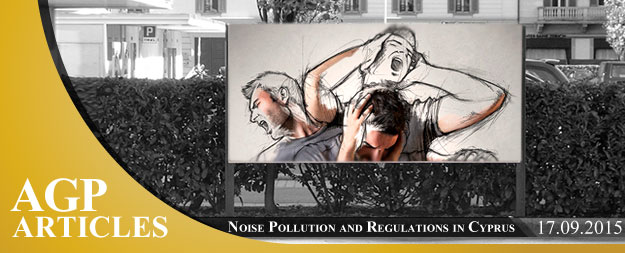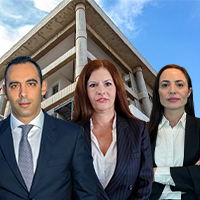
The World Health Organization (WHO) defines noise as “unwanted sounds”. The noise can be generated by road and airport traffic, as well as by industry, construction and other activities. Environmental noise can occur in various settings (home, workplace, recreational places etc.) and depending on the setting a different law or regulation might apply.
What is the Law governing the cases related to the noise nuisance that occurs in a private setting?
For instance, if noise nuisance occurs in a private setting, then in Cyprus, the Law governing such cases shall be the Civil Wrongs Law. More specifically, if a person cannot enjoy his property due to excessive noise generated by a neighbour’s activities for instance, then he/she can proceed to a legal action against the latter.
What is the Law governing cases related to the noise that occurs at a workplace?
For occupational noise exposure, the relevant law would be The Safety and Health at Work Law (1996).
Before proceeding to a legal action, what parameters should you take into account?
- The location where the noise is generated – The noise tolerance level is not the same in residential, commercial and industrial areas.
- Context – It is crucial to determine the setting in which the noise occurs. For instance, can it be considered as a private nuisance or is it work related?
- Frequency – Is there a pattern in the noise occurrences or are they random?
- Extenuating circumstances for the other party and a possible value provided to the community – For instance, the nuisance that is generated by the Church bells tolling on Sundays and by festivals and other cultural and athletic events might fall under this case.
Are there any international standards regarding noise levels?
The recommended noise levels as provided by the World Health Organization serve as guidelines for the governments for the implementation of their own regulations.
For legal advice, please get in touch with our team.













